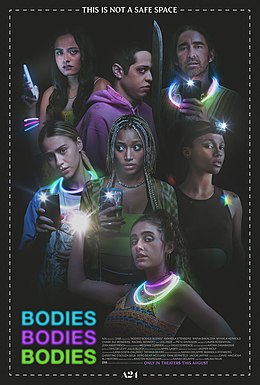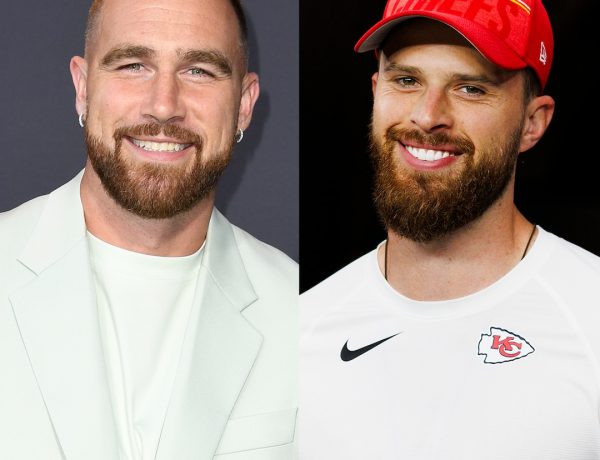When the Donald Trump-Roy Cohn buddy movie The Apprentice finally makes it to U.S. movie theaters Friday after a rocky journey, it will be thanks in part to a man who has been shepherding controversial films since Trump was just another New York tycoon on the make.
Tom Ortenberg, the 64-year-old founder of indie distributor Briarcliff Entertainment, closed a deal for the domestic rights to The Apprentice on Aug. 30, just barely in time to get the movie into theaters before the election. Despite a successful Cannes premiere, Ortenberg was the only serious bidder on The Apprentice, and he waited months as producers bought out one of the movie’s financiers, billionaire investor and Trump friend Dan Snyder, who objected to the former president’s portrayal. In The Apprentice — a villain’s origin story directed by Ali Abbasi and written by journalist Gabriel Sherman — Sebastian Stan plays Trump in the early years of his business career in the 1970s and 80s, and Jeremy Strong is Cohn, Trump’s attorney and mentor. In the spring, Trump announced that he planned to sue to prevent the release of the film, which depicts him getting liposuction, popping pills and sexually assaulting his first wife, Ivana.
On Oct. 2, Ortenberg snapped up the domestic rights to another movie studios didn’t want, Magazine Dreams, the Jonathan Majors bodybuilding drama Searchlight dropped after a New York jury convicted its star of assault last December. “I don’t wake up in the morning wondering what controversies I’ll stumble into that day,” Ortenberg said, of his recent acquisitions, “but I’m certainly not going to walk away from them.”
The executive brings to those films decades of experience opening movies studios have considered too hot to handle. When Disney refused to let Miramax release Kevin Smith’s Dogma in 1999 for its irreverent treatment of Catholicism, Ortenberg, then-head of theatrical at Lionsgate, agreed to distribute the movie there, at one point debating a head of the Catholic League on a phone call with a theater owner about the movie’s merits. He picked up the distribution of Fahrenheit 9/11 in 2004. The Michael Moore Iraq War film went on to become the highest-grossing documentary of all time. He also released best picture winner Spotlight, about reporters covering the Catholic Church sex abuse crisis, while running Open Road Films in 2015; and The Dissident, Bryan Fogel’s documentary about the assassination of journalist Jamal Khashoggi, at Briarcliff in 2020.
Ahead of the theatrical opening of The Apprentice on Oct. 11, Ortenberg spoke to The Hollywood Reporter about feeling disappointed by what he calls the “cowardice” of his Hollywood peers, why he sees hot-button films as “distressed assets” and how he plans to find an audience for The Apprentice. “Nobody wants to go see a movie just because it’s controversial,” Ortenberg says. “But when you have a movie that is informative, provocative and broadly entertaining, that makes a movie that people might want to go see.”
The announcement that you acquired the domestic rights to The Apprentice went out on Aug. 30, months after the movie premiered to raves at Cannes. What happened in between?
I wasn’t able to make it to the Cannes Film Festival this year, because I was in production on another film, [Nickels, starring Rob Riggle]. I heard about the cease and desist letter from the Trump campaign. I read about the thunderous reception the film received at Cannes both from critics and audiences. I just assumed it would be way too expensive for me to acquire. Then, in the couple of days that followed its world premiere, I started reading stories about how not just bigger studios but also some of the independent elites, were running away from the picture, not having anything to do with finances or artistic merit but strictly based on cowardice.
I saw the film a few days later [via a screening link]. I loved it, immediately made an offer on it, and that offer was warmly received. But I was told that the filmmakers needed to settle some differences with their financiers before they were able to actually consummate a deal for domestic distribution. And unfortunately, that negotiation between filmmakers and financiers took all summer long.
What was your understanding of why other distributors didn’t want it?
They’re cowards. Many in the industry are afraid of repercussions should Trump win the election. And to me, that’s heartbreaking. I keep liking to think that we as an industry are better than that, and I keep getting reminded that we’re not.
What did you spend, and what will your theatrical rollout look like?
I can’t get into the details of the deal, but there were no other serious bidders for the movie. So by default, if there’s not much competition, the deal isn’t usually too expensive. It should have been.
We’ll open the movie wide, somewhere between 1,500 and 2,000 theaters. But we look at this as a marathon, not a sprint. It’s not about opening weekend, and it’s not about how many screens or this or that. It’s about the legacy of the film, which I think will be a strong one through awards season and beyond.
Have you heard from Trump since the deal closed?
I’m aware of the cease and desist letter that the Trump campaign sent to the filmmakers on the eve of the Cannes Film Festival. Not surprisingly, that turned out to be an empty threat. I have not heard from anybody related to the Trump campaign since we announced our acquisition. I have no idea what to expect in the future, but it certainly won’t affect any of our plans for the film.
What have your conversations with theater owners been like?
Interestingly, theater owners generally have been very supportive. It’s funny because the corridors of power in Hollywood are often thought of as being more liberal. The world of exhibition is oftentimes thought of as being among the more conservative facets of the entertainment industry. But when it comes to censorship, you have the titans of industry in Hollywood running for the hills to avoid potential repercussions while exhibitors, they just want to show movies. They don’t want to be the ones who decide that audiences are allowed to see one movie but not allowed to see another. So exhibitors are thrilled to play The Apprentice. They’re thrilled to play Reagan [the Dennis Quaid movie], they’re thrilled to play [the Daily Wire Studios documentary] Am I A Racist? They’re thrilled to play Michael Moore documentaries. They’re thrilled to play Dinesh D’Souza documentaries. Exhibitors just want to play movies, and let the audiences decide which they want to see.
How did the attempt to advertise during the vice presidential debate fit into your marketing strategy?
We tried to advertise during the presidential debate and during the vice presidential debate, and we were rejected from both. We thought that those were pretty good captive audiences and would be a good spot to spend our precious marketing dollars. And we were denied. We felt like we owed it to ourselves and to the public to publicize that fact. I think the networks should have accepted our spots. We vehemently disagreed with their decision.
Well, getting a free publicity bump for being rejected versus having to pay for a network ad — that sounds like it wasn’t a full loss.
I don’t disagree.
Let’s shift gears to Magazine Dreams — why did you make that deal?
When we approach filmmakers about acquiring the domestic distribution rights to controversial films, to films that have been shunned by others, we look at those films as distressed assets. Magazine Dreams, at least reportedly, was acquired by Searchlight for $10 million at the 2023 Sundance Film Festival. There’s a reason Searchlight agreed to pay that kind of money. It’s because the movie’s really fucking good, and Jonathan Majors gives an awards-caliber performance. Those facts remain. Magazine Dreams was not a particularly expensive acquisition given the circumstances. We’ll be bringing it to audiences likely in early spring of 2025. I don’t think it should have had to wait another year and a half after Searchlight dropped it to find distribution. But here we are, and I’m thrilled to be doing it.
Will Jonathan Majors promote it?
Yeah. Jonathan remains very supportive of the movie, and we are supportive of him. We have not mapped out a whole PR strategy yet of what we will or will not ask of him or what he is or is not comfortable doing. But Jonathan is and remains an undeniable talent, and he will absolutely be a part of the campaign for the movie, no doubt.
How does distributing The Apprentice compare to other experiences you’ve had in your career with politically sensitive films?
It’s been eerily similar. I’m never going to shy away from doing controversial movies. It’s essential that somebody do it. [The experience of releasing The Apprentice] has convinced me that I need to have greater ambitions for Briarcliff. So far I’ve been financing Briarcliff out of my own pocket. I cover the day-to-day overhead of the company. When we’re doing smaller films, I cover all of that myself. When we do bigger films, including The Apprentice, I search out partners on a one-off basis.
But recently I’ve come to the conclusion that I need to grow the company. And so at a calm moment in the not-too-distant future, I’m going to concentrate on doing another raise to give Briarcliff the chance to grow into another Open Road, perhaps challenge a Lionsgate. I don’t know whether it’s good news or bad news that after almost 40 years in this industry, I still feel needed.




